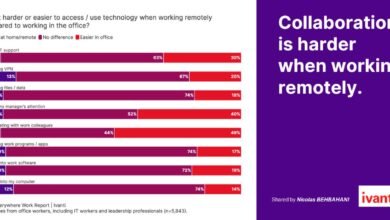
By | Matt Gregory
Just as with any other private or public sector business, charities have objectives and aims that they need to achieve. Whether it’s a water charity or a food charity, the objectives need to be aligned with practices and processes. While charities rely heavily on donations and volunteers, there is still a need for employees. As a result, human resources is an incredibly valuable asset to any charity, and it works in the following ways.
Documentation and Compliance
The Health and Safety at Work Act 1998, the Equality Act 2010, and other forms of legislation all still apply to the third sector if there are employees. As a result, HR in the charity sector works to provide an up-to-date handbook in which all the policies that need to be complied with are detailed. For instance, GDPR and maternity leave will be covered in this handbook. The knowledge of HR professionals is incredibly valuable for this, as they’re aware of what the policies should include and how to manage them effectively.
Being Strategic
HR is all about strategy, meaning HR professionals are able to make strategic decisions within a charity. Since charities might have limited funds, it’s important to use these effectively, which is where HR professionals come in to assist the charity. Absolutely every decision made by a charity should be advantageous and sustainable if they’re to make the most of the funds available to them.
Employee Relations
Unfortunately, you’ll have to deal with redundancies, disciplinaries, and grievances no matter what industry you’re in. Many believe that the charity sector is exempt from these complications; however, this isn’t the case. When employee relation issues take place, HR needs to managethese issues effectively by establishing robust processes and policies. As a result, any issues that arise can be dealt with in a protective, effective, and legal manner. Working in HR means having a duty of care to employees, meaning all issues need to be dealt with appropriately.
Training
Training is essential to ensuring that employees are able to carry out their duties, and HR professionals are responsible for carrying out this training. What’s more, training in the charity sector has a number of layers, as there are employees and volunteers to think about. As previously mentioned, charities don’t necessarily have a large amount of funding, meaning they often don’t have the funds or time for training. That’s where HR comes in to ensure that people are properly trained regardless of their financial situation. After all, charities can’t rely on goodwill alone.
HR in charities involves having training processes in place to ensure the objectives are met. Meanwhile, skilled HR specialists have the skill set to motivate individuals using their training and development expertise. Similarly, the collation and storage of data means that compulsory training won’t be missed from the calendar.
Recruitment
Last but certainly not least, recruitment in the third sector needs to be both cost-effective and time-efficient. This is down to the limited funds available to those in the public or private sector. Although working in the charity sector can be incredibly rewarding, it often takes a lot more to reach candidates and employ them. That’s where HR comes in to create a robust recruitment process; this might include advertising the role, interviewing, induction, and training. This is all while ensuring that key staff are employed who will enhance the charity. Conduct and attitude are extremely valuable to charities, so this means that HR professional help for recruitment is an absolute must. This is because this is what will help you recruit the right candidate for the role.






